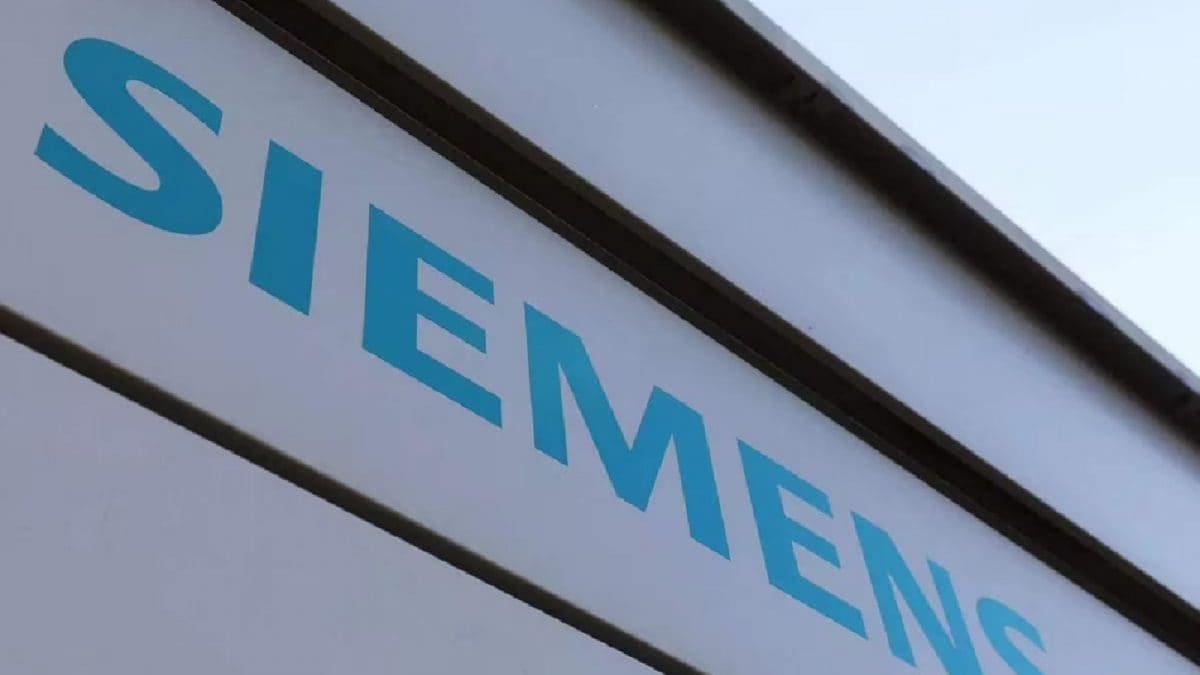Politics
Britain reviews human rights laws in major shake-up of asylum policy
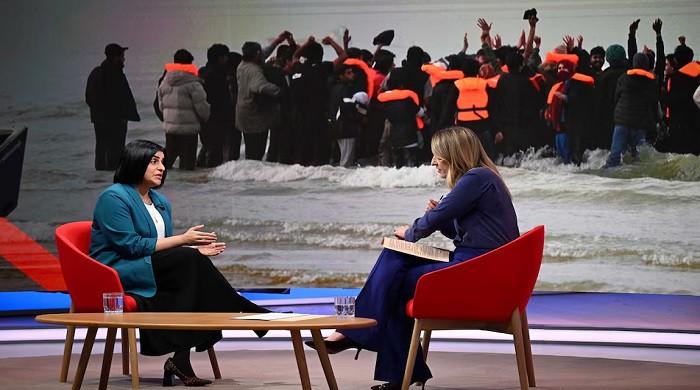
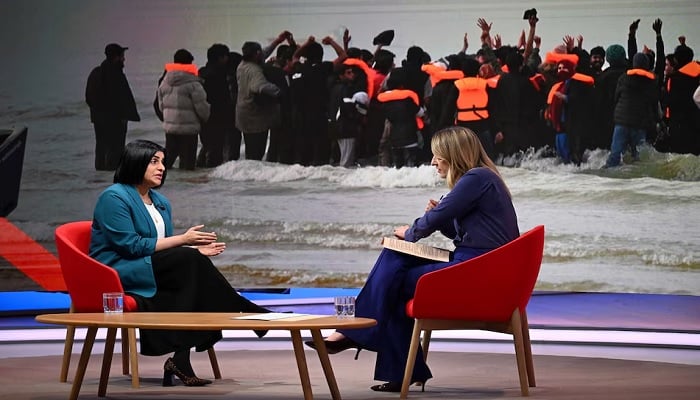
- Govt seeks changes to the interpretation of human rights laws.
- UK toughens stance as polls point to immigration concern.
- Changes to refugee status part of planned shake-up.
Britain will overhaul its approach to human rights laws to make it easier to deport migrants who arrive in the country illegally as part of a major shake-up of asylum policy to be set out on Monday.
Interior minister Shabana Mahmood will outline changes to how the European Convention on Human Rights will be interpreted by courts, the government said.
“These reforms will block endless appeals, stop last-minute claims and scale up removals of those with no right to be here,” Prime Minister Keir Starmer said in a statement.
In what the government claims to be the most sweeping asylum policy overhaul of modern times, Mahmood will also announce plans to make refugee status temporary and to quadruple the length of time refugees will have to wait for permanent settlement in Britain.
Britain’s Labour government is taking a tougher stance as it struggles to curb clandestine migration, particularly via small boat crossings. Polls indicate immigration is a top concern of voters, and the populist Reform UK party has a commanding lead in polls.
Tougher stance
The government said Article 8 of the European Convention on Human Rights, the right to a family life, was being misused by migrants to delay their removal from Britain.
It wants new laws to make clear that a family connection means immediate family, such as a parent or child, preventing people from “using dubious connections to stay in the UK”.
It added that Britain would also work with like-minded countries to review the application of Article 3, which prohibits torture, noting the “definition of ‘inhuman and degrading treatment’ has expanded beyond what is reasonable.”
The government has said it wants to remain in the European Convention on Human Rights, amid calls from Reform and some in the Conservative Party for Britain to leave it altogether.
However, the government’s harder stance on immigration has been criticised by charities who say it forces desperate people further into destitution.
“These proposals will punish people who’ve already lost everything,” said Sile Reynolds, Head of Asylum Advocacy at Freedom from Torture. “Stripping away protections that prevent people from being sent back to their torturers is not who we are as a country.”
Starmer, a former human rights lawyer, said Britain was a “fair, tolerant and compassionate country,” but that in a more volatile world,” people need to know our borders are secure.”
The government added that there would also be reforms to streamline the appeals system, to fast-track the deportation of criminals and to prevent against misuse of modern slavery laws to impede removals.
Politics
Bangladesh verdict due in ex-PM Sheikh Hasina’s crimes against humanity trial
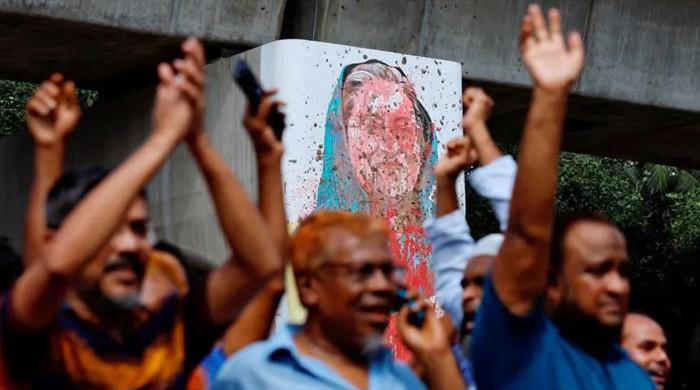
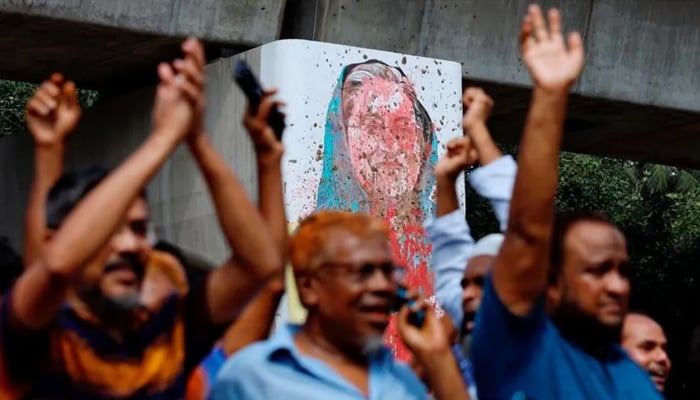
- Hasina defies court orders that she return from India to attend trial.
- Bangladesh remains in political turmoil since end of Hasina’s rule.
- Chief prosecutor says “justice will be served according to the law”.
Bangladeshi judges will deliver their verdict on Monday in the crimes against humanity trial of fugitive former prime minister Sheikh Hasina, a highly anticipated ruling before the first polls since her overthrow.
Hasina, 78, defied court orders that she return from India to attend her trial about whether she ordered a deadly crackdown against a student-led uprising that ousted her in August 2024.
She faces a possible death penalty if convicted.
Bangladesh has been in political turmoil since the end of Hasina’s autocratic rule, and violence has marred campaigning for elections expected in February 2026.
The United Nations says up to 1,400 people were killed in crackdowns as Hasina tried to cling to power, deaths that were central to her trial.
“Justice will be served according to the law,” chief prosecutor Tajul Islam told reporters when the verdict date was set last week.
“We hope the court will exercise its prudence and wisdom, that the thirst for justice will be fulfilled, and that this verdict will mark an end to crimes against humanity,” he said.
Prosecutors have filed five charges, including failure to prevent murder, amounting to crimes against humanity under Bangladeshi law.
The trial has heard months of testimony in absentia alleging she ordered mass killings. She has called the trial a “jurisprudential joke”.
Her co-accused include former interior minister Asaduzzaman Khan Kamal — also a fugitive — and former police chief Chowdhury Abdullah Al-Mamun, who is in custody and has pleaded guilty.
Hasina was assigned a state-appointed lawyer for the trial but she refused to recognise the court’s authority and said she rejected all charges.
Hasina said in a written interview with AFP in October that a guilty verdict was “preordained”, and that she would “not be surprised when it comes”.
Deepening crisis
Security forces surrounded the court when the verdict date was set on Thursday, with armoured vehicles manning checkpoints.
Dhaka Municipal Police spokesman Talebur Rahman said the force would be on high alert for Monday’s verdict, with checkpoints at key intersections across the capital.
Almost half the city’s 34,000 police would be on duty, he said.
Interim interior ministry chief Jahangir Alam Chowdhury told reporters the government was prepared and there was no cause for concern.
Crude bombs have been set off across Dhaka this month, mainly petrol bombs hurled at everything from buildings linked to interim leader Muhammad Yunus’s government to buses and Christian sites.
Bangladesh’s foreign ministry summoned India’s envoy to Dhaka this month, demanding that New Delhi block the “notorious fugitive” Hasina from talking to journalists and “granting her a platform to spew hatred”.
Hasina remains defiant.
She said in October she “mourned all the lives lost during the terrible days” when students were gunned down in the streets. Her comments enraged many who said she had made a ruthless bid to maintain power at all costs.
Hasina also warned that the ban on her former ruling party the Awami League by the interim government was deepening the political crisis in the country of 170 million people before the elections.
Politics
Trump reverses stance on Epstein files, urges Republicans to vote for releasing them
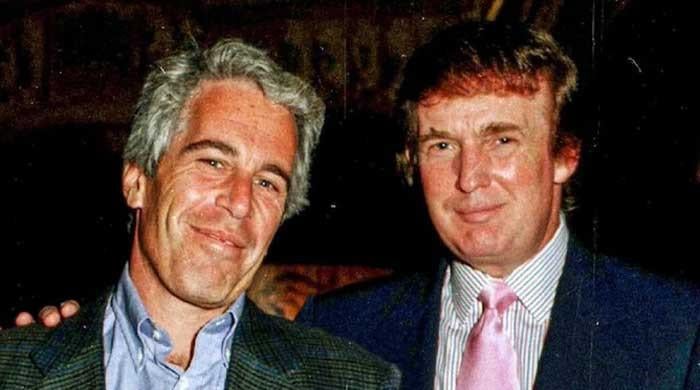
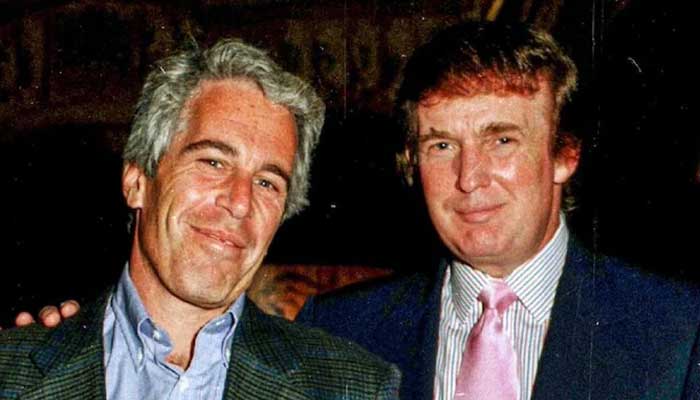
- “We have nothing to hide,” says President Donald Trump.
- He says its time to move on from this Democrat Hoax.
- Emails reveal that Epstein believed that Trump “knew about girls”.
WASHINGTON: US President Donald Trump has urged his fellow Republicans in Congress to vote for the release of files related to the late convicted sex offender Jeffrey Epstein, reversing his earlier resistance to such a move.
Trump’s post on his Truth Social came after House Speaker Mike Johnson said earlier that he believed a vote on releasing Justice Department documents in the Epstein case should help put to rest allegations that Trump had any connection to Epstein’s abuse and trafficking of underage girls.
“House Republicans should vote to release the Epstein files, because we have nothing to hide,” Trump wrote on Sunday night. “And it’s time to move on from this Democrat Hoax perpetrated by Radical Left Lunatics in order to deflect from the Great Success of the Republican Party, including our recent Victory on the Democrat ‘Shutdown’.”
Although Trump and Epstein were photographed together decades ago, the president has said the two men fell out before Epstein’s convictions.
Emails released last week by a House committee showed the disgraced financier believed Trump “knew about the girls,” though it was not clear what that phrase meant.
Trump, who has recently dismissed the Epstein files as a Democratic smear campaign, has since instructed the Department of Justice to investigate prominent Democrats’ ties to Epstein.
The battle over disclosure of more Epstein-related documents, a subject Trump himself campaigned on, has opened a rift with some of his allies in Congress.
Many of Trump’s most loyal supporters believe the government is withholding sensitive documents about Epstein, a convicted sex offender who died by suicide in jail in 2019, that would reveal the late financier’s ties to powerful public figures.
Trump late on Friday withdrew his support for US Representative Marjorie Taylor Greene of Georgia, long one of his staunchest supporters in Congress, following her criticism of Republicans on certain issues, including the handling of the Epstein files.
US Representative Ro Khanna, a California Democrat and an original sponsor of the petition calling for a vote on the files’ release, said on Sunday that he expected more than 40 Republicans to vote in favour.
Republicans hold the majority in the House, with 219 seats, versus 214 for Democrats.
Politics
At least 32 killed in DR Congo bridge fall amid scramble at illegal cobalt mine
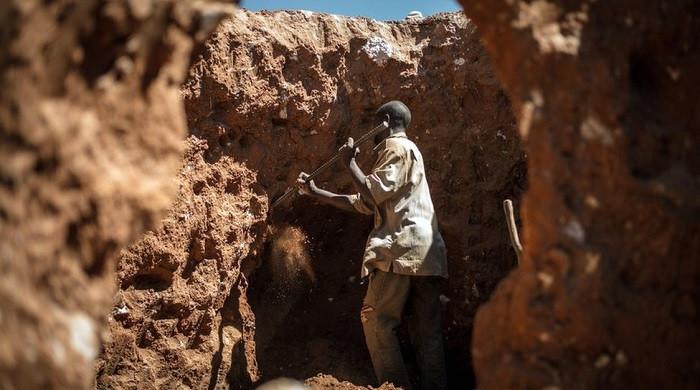
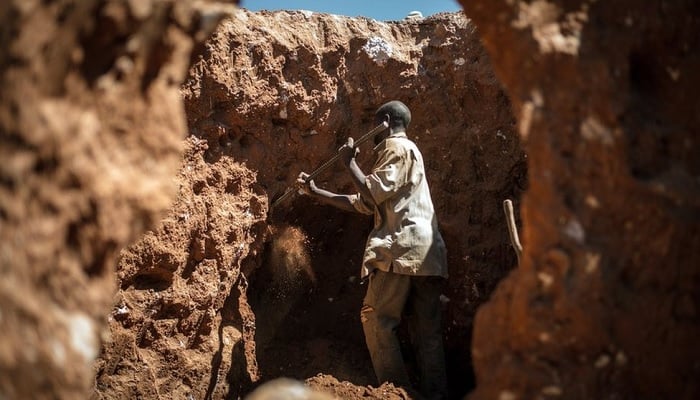
- Bridge falls as miners cross flooded trench despite rain-related access ban.
- Over 30 bodies recovered as search teams continue pulling victims from site.
- DRC’s cobalt sector long faulted for child labour, unsafe conditions, corruption.
A bridge collapsed at a cobalt mine in southeast Democratic Republic of Congo, killing at least 32 wildcat miners, a regional government official said Sunday.
The bridge came down onto a flooded zone at the mine in Lualaba province on Saturday, Roy Kaumba Mayonde, the provincial interior minister, told reporters. He said 32 bodies had been recovered and more were being searched for.
The DRC produces more than 70% of the world’s cobalt supply, which is essential for batteries used in electric cars, many laptop computers, and mobile phones.
More than 200,000 people are estimated to be working in giant illegal cobalt mines in the central African country.
Local authorities said the bridge collapsed at the Kalando mine, about 42 kilometres (26 miles) southeast of the Lualaba provincial capital, Kolwezi.
“Despite a formal ban on access to the site because of the heavy rain and the risk of a landslide, wildcat miners forced their way into the quarry,” said Mayonde.
He said that miners rushing across the makeshift bridge, built to get across a flooded trench, made it collapse.
A report by the SAEMAPE government agency which monitors and helps mining cooperatives said that the presence of soldiers at the Kalando mine had caused a panic.
The report said the mine had been at the heart of a longstanding dispute between the wildcat miners, a cooperative that was meant to organise digging there and the site’s legal operators, who were said to have Chinese involvement.
The miners who fell “piled on top of each other, causing the deaths and injuries”, the report said.
Images sent to AFP by the provincial office of the National Human Rights Commission (CNDH) showed miners digging out bodies from the trench, with at least 17 bodies laid out on the ground nearby.
CNDH provincial coordinator Arthur Kabulo told AFP that more than 10,000 wildcat miners operated at Kalando. Provincial authorities suspended operations at the site on Sunday.
Accusations over the use of child labour, dangerous conditions and corruption have long cast a shadow over the DRC’s cobalt mining industry.
The DRC’s mineral wealth has also been at the heart of a conflict that has ravaged the country’s east for more than three decades.
-

 Entertainment1 week ago
Entertainment1 week agoChina unveils£5.4 bn Fujian, its most advanced aircraft carrier yet
-

 Tech7 days ago
Tech7 days agoFrom waste to asset: Turning ethanol production CO₂ into jet fuel
-

 Tech2 days ago
Tech2 days agoNew carbon capture method uses water and pressure to remove CO₂ from emissions at half current costs
-

 Politics3 days ago
Politics3 days agoBritish-Pakistani honoured for transforming UK halal meat industry
-

 Sports1 day ago
Sports1 day agoTexas A&M officer scolds South Carolina wide receiver after touchdown; department speaks out
-
Sports1 week ago
College football winners and losers: The catch of the year saves Indiana
-
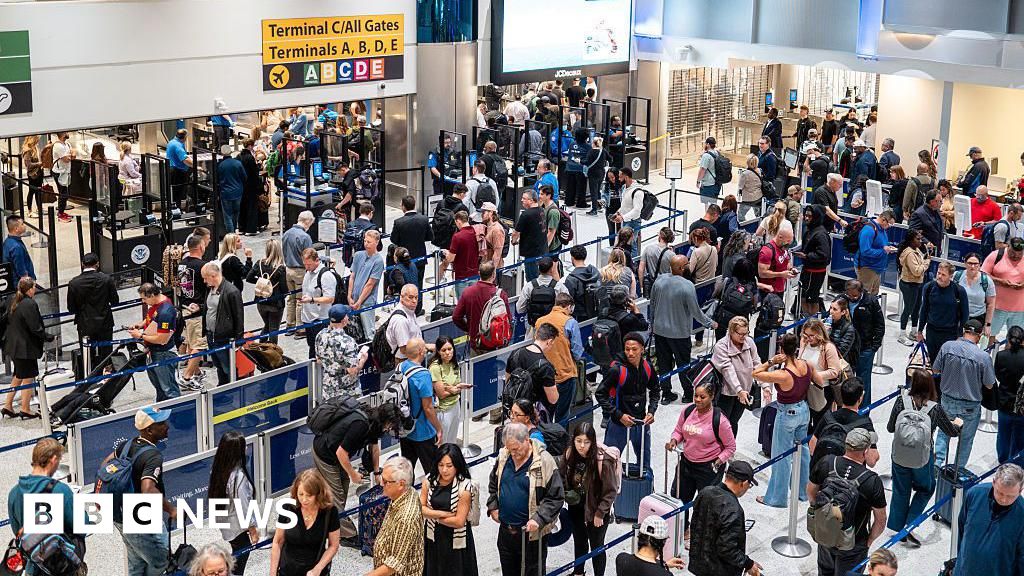
 Business1 week ago
Business1 week agoMore than 1,000 flights cancelled as US air traffic cuts enter second day
-
Sports1 week ago
The next Tom Brady? No, Drake Maye is a different breed.



